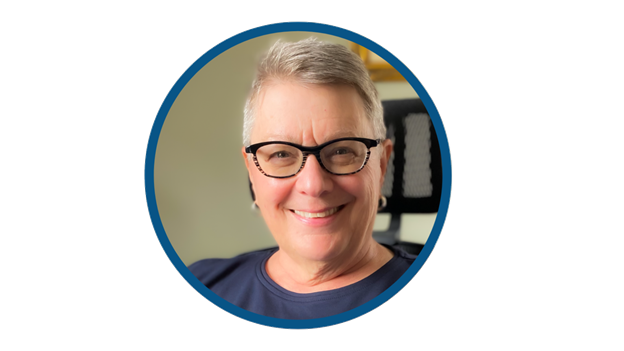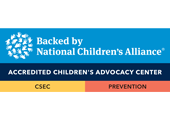What is secondary traumatic stress?
Let’s reduce the stigma and relieve the burden
July 15, 2022
At Children’s Cove, we work with child survivors of sexual abuse, assault, violence, and exploitation. We listen as children tell their story, and our multidisciplinary team gathers the information needed for an investigation. Coordinated care is provided to each child and their non-offending family members who may be affected by the trauma.
For every child who is a victim of crime, there’s a team of professionals from law enforcement, child protection, mental health and medical services working to support them. The trauma the survivor and their family experience is often palpable. What is also important to note is that the effect of that trauma does not stop with the families – professionals who work in this field also experience something called vicarious trauma or secondary traumatic stress.
Vicarious trauma is when an individual, because of their work, experiences a profound shift in their worldview. This secondary traumatic stress is the emotional toll absorbed at each instance of hearing about someone else’s trauma, or talking with someone about their trauma, or witnessing someone else’s trauma after the fact. This participation in the experience of another’s trauma, even to support them, has consequences that mirrors post-traumatic stress disorder, or PTSD.
As a larger culture in our country, we have a terrible habit of going and going until we have nothing left. that doesn’t happen to work very well in these circumstances.”
One misunderstanding about secondary trauma, and the stress felt from it, is the belief that each incident is addressed and moved past. Unfortunately, this is not the case. Secondary traumatic stress is cumulative, as each incident, each memory and each sense is touched from the experience of what you heard, how you heard, where and what you saw. It becomes a permanent impression in your mind,
Often professionals who work at child advocacy centers, law enforcement agencies, as well as those who provide emergency medical, mental health, or child protective services, recognize these experiences as an occupational hazard. Even when this occupational hazard is identified, there is an expectation that due to the job they hold, they are a professional and should be able to process their vicarious trauma. This very unfair expectation has created a stigma around asking for help, which creates an emotional burden with no outlet.
With no outlet, imagine each vicarious traumatic experience as a drop of water into a glass a person must carry with them everywhere. At first the weight of that glass isn’t much. But with time, more drops are collected in the glass, the weight builds, the strain grows and the burden of carrying all that water becomes too much. This is usually when the water spills over and the result can be an emotional breakdown, impulsive decision-making like quitting a job, or struggles with substance misuse, or worse.
At Children’s Cove, we believe it’s imperative that our team members are well taken care of – that we address and discuss openly vicarious trauma and secondary traumatic stress. We incorporate conversations about trauma in our interviews, staff meetings and regular supervision. Our staff regularly attends trainings on managing secondary traumatic stress and we’ve partnered with Calmer Choice to learn mindfulness skills to aid in our own self-care.
For those of you who need help decompressing to relieve secondary traumatic stress, here are a few suggestions we’d like to offer.
The first is the most important: empty your glass before it gets too heavy.
As a larger culture in our country, we have a terrible habit of going and going until we have nothing left. that doesn’t happen to work very well in these circumstances. You must find a way to empty the glass. This is typically something that you do, it’s not something that you take. It’s finding, and setting regular time for, an activity that you enjoy which makes you active, mentally, or physically. It’s taking the time to talk with a friend, and if you feel brave, talk about what you have been feeling lately. It’s volunteering or engaging in an activity to support others you don’t see regularly. It’s reconnecting with your spirituality or faith. It’s allowing yourself permission to see a therapist.
To address the impact of secondary traumatic stress, it is vital to acknowledge that there is an emotional burden and that it is imperative to take time to heal. Making conscious choices and decisions to set time for ourselves by doing something we know replenishes our strength – either mentally, physically, or spiritually will allow us to empty that glass a little bit, to continue to carry it forward.
Remember, you matter. We matter. The roles that we all play in each other’s lives matter.
Please take care of yourselves.







